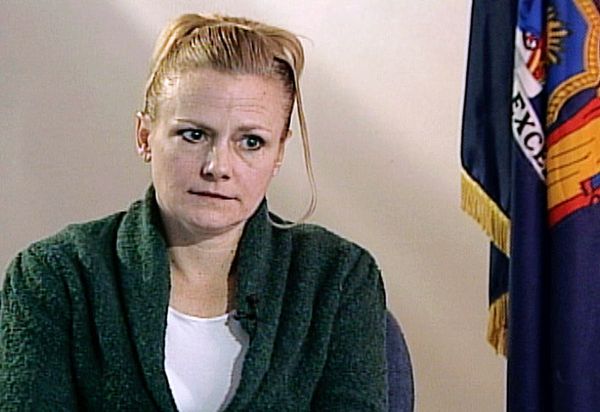
“I went through this process of feeling like my future had been stolen from me,” says 53-year-old Kate Christie about the end of her 22-year marriage. “He said to me, ‘I don’t love you any more. I want to leave our marriage. I want the chance to meet and fall in love with someone else while I’m still young.’ And that was that.”
“I felt really blindsided. I was angry, upset and resentful.”
Christie is one of a growing number of over 50s navigating life after separation and divorce.
“[There’s] definitely an uptick in mature age divorces compared to even 10 years ago,” says clinical psychologist, Dr Rashika Gomez. It’s an observation supported by the most recent research from the Australian Institute of Family Studies, which shows that the proportion of divorces among couples married for 20 years and longer has increased from about 20% in the 1980s and 1990s, to over 25% in 2021.

Dr Gomez has also noticed an increase in the number of those in mature marriages seeking relationship advice. “They’re seeking that outside opinion on [whether] something is wrong, because you can’t see it when you’re in it.”
It was a counsellor that helped Brodie* see her rollercoaster marriage for what it was – emotional abuse. “She was my saviour,” says the 63-year-old of her counsellor. But family and friends were shocked Brodie was calling it quits after 32 years. “We were known as the golden couple.” She shakes her head. “It was the hardest thing I’ve ever had to do.”
Brodie says life on the other side has never been better. “Bloody amazing. I can feel the sunshine. I can hear the birds. I’ve rediscovered myself.” And despite her experience, she is not anti-relationships or anti-marriage. “But I can assure you I will never have anyone live with me again.
“I’d rather be on my own than unhappy,” she insists. “I’ve got my friends. I’ve got my sons.”
Recently divorced, Raymond* is grateful he has the support of a boatload of good friends, but the 71-year-old longs for that special someone. “A lot of people think friends are enough. But I don’t think they are. You’ve got to have someone special that turns into a partner.” And after 24 years of marriage, he thought he had that person, but the fear and uncertainty circulating during the pandemic tipped the relationship upside down. The final straw came after restrictions eased. His ex-wife was averse to him returning to the job he’s loved for over 43 years. “If you go, don’t come home.” So, ultimately, he moved out.
Reaching the threshold
Dr Gomez describes the point Raymond reached as a “threshold,” a common reason those in mature marriages suddenly go “I can’t do this any more”.
Relationship therapist Clinton Power agrees reaching a threshold is when couples may see separation and divorce as inevitable. “Sometimes if there’s been a lot of hurt or betrayal or there’s an enormous distance from growing apart, the idea of working on the relationship feels more overwhelming than separating and starting anew.”
In his experience, the lack of a shared focus or a realisation that the couple has fewer common interests are key contributors to mature age separation. It often occurs at the time the couple’s children reach early adulthood or leave home.
Another is midlife, when individuals in a relationship may undergo significant personal change or question the direction of their lives. “So that’s when I see some individuals in a relationship start to think, ‘hang on, I’m not completely happy here, this relationship is not fulfilling my needs’,” says Power.
“If you just look at life expectancy, for example, in the past, people didn’t live as long as we’re living now. Now we’re hitting 90, 100, with relatively fewer issues. So when you’re hitting your 50s, you’re no longer looking at 15 years more with someone you might find annoying, or you don’t get along with, you’re now looking at another 50 years with someone like that,” says Dr Gomez. “And that can feel really confronting, and overwhelming, and you just might not want to do that any more.”
Lawyer Brad Saunders, who has specialised in family law for 25 years, says the over 50s are less inclined to stay together and ‘grin and bear it’ than their parents. “More choose to separate and it is more acceptable to separate,” he says.
But he sees one major difference in the way older couples, in general, approach separation compared to younger couples. “Older couples are better at planning their separation more amicably.”
Power says he’s found many mature aged couples aim for a “good uncoupling” so that they can maintain a healthy relationship. “So maybe ‘we can be in each other’s lives and have a healthy relationship’, whereas sometimes that slash and burn approach happens in the younger couples.”
With his divorce finalised earlier this year, Raymond and his ex are rebuilding their friendship. “I can’t see the point in being filthy angry with anybody. All it does is eat you away as well.” But he’s adamant they’ll never get back together again. “Life’s too short, anyway.”
Christie agrees: “Life is too short to be angry, or sad, or lonely, or resentful, or unfulfilled.” By March 2020, Christie and Dan had found a new way of being. “We were starting to form the basis of our new friendship,” she says. And “we were co-parenting really well”. One month later, Dan was diagnosed with pancreatic cancer, then 11 months later, he passed away. “It was so brutally fast,” recalls Christie. He was 54.
Alongside the grief, Dan’s passing ignited in Christie a desire to live life differently. “I had this really clear resolution, which I honestly feel was a gift from him, that I wanted to live very differently from that point on.” She wrote a list of things she wanted to do, experience or change. Today, Kate’s list is a structured set of goals and plans to achieve them. Earlier this year, she published a book on her new approach, called The Life List.

She found the act of writing cathartic. “Phenomenally healing.” It’s helped her order her thoughts into words and to reflect on her separation. She can now admit that she didn’t fight to save her marriage. “I didn’t once say to him, ‘Well, fall back in love with me honey, let’s work on this.’ I didn’t suggest counselling. I didn’t try and talk him out of it. I think I was relieved … I could get on with my own life.” She’s proud she found the courage to show her vulnerability. “We all have a backstory and I’m proud of myself for letting people in.”
Learning to let her guard down is something that 50-year-old Anne McCrea is struggling with after an irreparable breakdown of trust in her marriage. She and her husband had been married for 18 years. All in one moment, things fell apart. “I kind of just, you know, froze. I was at the beach with the kids and the dog and kind of just sat quietly crying to myself for a little while.”
Separating at this life stage can rarely be a clean or complete break. “We had to talk to each other, we had no choice. I couldn’t just ignore him; we had three children [aged 10, 15 and 18] that we needed to manage day to day.” McCrea adds, “so we kind of got functioning and working very quickly”.
Functioning included travelling with her ex-husband on a planned European family holiday shortly after her grandmother’s funeral. It would only be on their return that they would confirm what McCrea admits the kids already knew, that they were separating. But she insists, “it was good for them to see that we could travel together”. From day one, McCrea’s priority has been her children’s wellbeing and maintaining their bond with their father. “[Maybe] it’s not worth saving the relationship, but it’s worth saving the future for the kids, you know, so they don’t have to have those uncomfortable Christmases.”
After returning from Europe, McCrea was diagnosed with cancer. Treatment would delay her sharing the news of her separation with her parents. “It was at least another year before I actually told my mother and father.”
Dating and divorce parties
McCrea says her trust in people has diminished and she’s developed a “bullshit radar”. She’s kept some friends, made new ones and said goodbye to others she’d shared with her ex-husband for more than 25 years. Does she want to get married again? “Who knows?” She’s dating again but admits it’s hard. She’s pickier now. “Dating in your 50s is brutal.”

Raymond is also dating again. He’s listed on a couple of online dating sites and is hoping to find that someone special to travel and enjoy life with. But he’s found mature aged dating challenging. “There are a ton of nice ladies out there, but once bitten, twice shy.” Raymond sighs: “I’ll just plod along. I think she’ll have to trip over me.”
Christie’s updated goals include finding a new love. She’s proud she hasn’t rushed into anything. “I wanted a period of time to understand me and what makes me tick as a person on my own.” What she found was a woman who is confident, tenacious, resilient and happy. “We’ve had some really hard years, but I think that the sadness and loss has made me the strongest that I am. I feel great.”

McCrea is rebuilding her confidence. “It’s taken a bit of a beating.” In anticipation of receiving her divorce papers, she’s planning a party – a divorce party. “A celebration of the next phase and next chapter.” She’s looking forward to drawing a line under the last six years of separation. “I can’t change anything in the past. I can only change what I can for the future.”
Some names in this article have been changed for privacy







